
A genre of arts criticism, literary criticism or literary studies is the study, evaluation, and interpretation of literature. Modern literary criticism is often influenced by literary theory, which is the philosophical analysis of literature's goals and methods. Although the two activities are closely related, literary critics are not always, and have not always been, theorists.
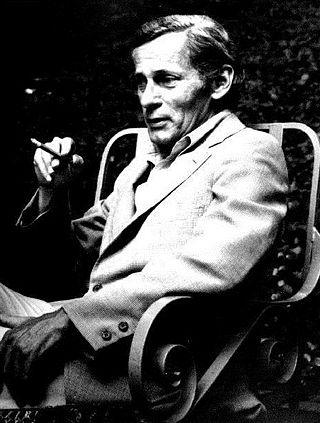
William Thomas Gaddis Jr. was an American novelist. The first and longest of his five novels, The Recognitions, was named one of TIME magazine's 100 best novels from 1923 to 2005 and two others, J R and A Frolic of His Own, won the annual U.S. National Book Award for Fiction. A collection of his essays was published posthumously as The Rush for Second Place (2002). The Letters of William Gaddis was published by Dalkey Archive Press in February 2013.
Paul de Man, born Paul Adolph Michel Deman, was a Belgian-born literary critic and literary theorist. He was known particularly for his importation of German and French philosophical approaches into Anglo-American literary studies and critical theory. Along with Jacques Derrida, he was part of an influential critical movement that went beyond traditional interpretation of literary texts to reflect on the epistemological difficulties inherent in any textual, literary, or critical activity. This approach aroused considerable opposition, which de Man attributed to "resistance" inherent in the difficult enterprise of literary interpretation itself.
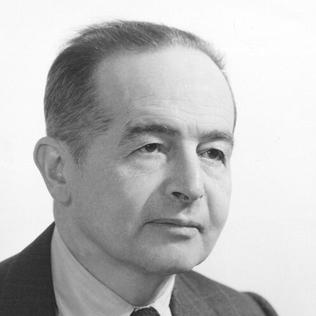
Erich Auerbach was a German philologist and comparative scholar and critic of literature. His best-known work is Mimesis: The Representation of Reality in Western Literature, a history of representation in Western literature from ancient to modern times frequently cited as a classic in the study of realism in literature. Along with Leo Spitzer, Auerbach is widely recognized as one of the foundational figures of comparative literature.

Postmodern literature is a form of literature that is characterized by the use of metafiction, unreliable narration, self-reflexivity, intertextuality, and which often thematizes both historical and political issues. This style of experimental literature emerged strongly in the United States in the 1960s through the writings of authors such as Kurt Vonnegut, Thomas Pynchon, William Gaddis, Philip K. Dick, Kathy Acker, and John Barth. Postmodernists often challenge authorities, which has been seen as a symptom of the fact that this style of literature first emerged in the context of political tendencies in the 1960s. This inspiration is, among other things, seen through how postmodern literature is highly self-reflexive about the political issues it speaks to.

Giles Goat-Boy (1966) is the fourth novel by American writer John Barth. It is a metafictional comic novel in which the universe is portrayed as a university campus in an elaborate allegory of both the hero's journey and the Cold War. Its title character is a human boy raised as a goat, who comes to believe he is the Grand Tutor, the predicted Messiah. The book was a surprise bestseller for the previously obscure Barth, and in the 1960s had a cult status. It marks Barth's leap into American postmodern fabulism.
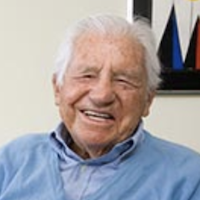
Meyer Howard Abrams, usually cited as M. H. Abrams, was an American literary critic, known for works on romanticism, in particular his book The Mirror and the Lamp. Under Abrams's editorship, The Norton Anthology of English Literature became the standard text for undergraduate survey courses across the U.S. and a major trendsetter in literary canon formation.
Michael Joyce is a retired professor of English at Vassar College, New York, US. He is also an important author and critic of electronic literature.

Lawrence F. McCaffery Jr. is an American literary critic, editor, and retired professor of English and comparative literature at San Diego State University. His work and teaching focuses on postmodern literature, contemporary fiction, and Bruce Springsteen. He also played a role in helping to establish science fiction as a major literary genre.
David E. Wellbery is an American professor of German Studies at the University of Chicago. As of 2022 he is the chair of the department of Germanic Studies and holds the LeRoy T. and Margaret Deffenbaugh Carlson University Professorship in the department. In 2020 he was elected to the American Philosophical Society.
Eugene Webb is Professor Emeritus in the University of Washington Henry M. Jackson School of International Studies. Webb holds a Ph.D., in Comparative Literature from Columbia University (1965), an M.A. in English Literature from Columbia University (1962) and also a B.A., in Philosophy from the University of California, Los Angeles (1960). Webb was a member of the faculties of both the Comparative Literature Department and the Henry M. Jackson School of International Studies, where he served as Associate Director and chaired programs in both Comparative Religion and European Studies (1994). Webb was also the founder of those two programs: Comparative Religion in 1974, and European Studies in 1994. He retired from the University of Washington in 2000, where he now has the title Professor Emeritus of International Studies. Webb has two books on the novels and plays of Samuel Beckett, and has authored the books The Dark Dove: The Sacred and Secular in Modern Literature (1975), Eric Voegelin, Philosopher of History (1981), Philosophers of Consciousness (1988) and The Self Between: From Freud to the New Social Psychology of France (1993), all published by the University of Washington Press. His book World View and Mind: Religious Thought and Psychological Development was published by the University of Missouri Press in 2009, and his In Search of the Triune God: The Christian Paths of East and West was published by the same press in 2014. Webb translated and wrote the introduction to Jean-Michel Oughourlian's, The Puppet of Desire: The Psychology of Hysteria, Possession, and Hypnosis,. He also translated a second book by Oughourlian, The Genesis of Desire, published by Michigan State University Press in 2010.
Steven Moore is an American author and literary critic. Best known as the primary authority on the novelist William Gaddis, he is the author of the two-volume study The Novel: An Alternative History.

Christoph Bode is a literary scholar. His fields are British and American literature, comparative literature, literary theory, poetics, and travel writing, but he is mainly known as a romanticist and a narratologist. He was full professor and chair of Modern English Literature in the Department of English and American Studies at Ludwig-Maximilians-Universität München until his retirement in March 2018.
Jenny Sharpe is a professor of English and Comparative Literature at UCLA. Her research focuses on issues of postcolonial studies, Caribbean literature, theories of allegory, the novel, rethinking models of memory and the archive, and the effect of the Middle Passage. In 2020, she began serving as the Chair of Graduate Studies in UCLA's English Department.
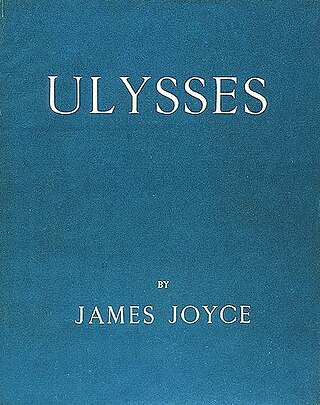
The encyclopedic novel is a literary concept popularised by Edward Mendelson in two 1976 essays referring to a work of fiction with an exhaustive, encyclopedia-like scope and writing style. In Mendelson's formulation, encyclopedic novels "attempt to render the full range of knowledge and beliefs of a national culture, while identifying the ideological perspectives from which that culture shapes and interprets its knowledge". In more general terms, the encyclopedic novel is a long, complex work of fiction that incorporates extensive information, often from specialized disciplines of science and the humanities. Mendelson's essays examine the encyclopedic tendency in the history of literature, considering the Divine Comedy, Don Quixote, Faust, Moby-Dick, and War and Peace, with an emphasis on the modern Ulysses and Gravity's Rainbow. Commonly cited examples of encyclopedic novels in the postmodern period include, in addition to Pynchon, Richard Powers' The Gold Bug Variations (1991), David Foster Wallace's Infinite Jest (1996), and Don DeLillo's Underworld (1997). Other literary critics have explored the concept since, attempting to understand the function and effect of "encyclopedic" narratives, and coining the related terms systems novel and maximalist novel.
Nina Yakovlevna Dyakonova was a Russian researcher of 19th century English and European literature, full professor, Doctor of Philology, member of the Board of Directors of the International Byron Society, and member of the editorial board of the Russian academic book series Literaturniye pamyatniki. She was an authority in the history of English literature and links between European literatures with each other and with Russian literature, especially of the 19th century, following her professor Mikhail P. Alexeyev.
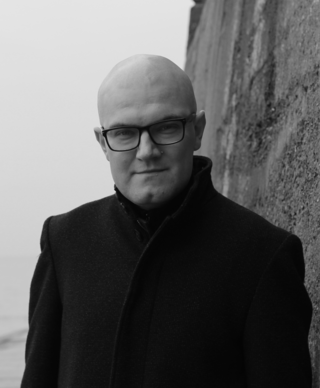
Martin Paul Eve is a British academic, writer, computer programmer, and disability rights campaigner. He is the Professor of Literature, Technology and Publishing at Birkbeck College, University of London, Principal R&D Developer at Crossref, and was Visiting Professor of Digital Humanities at Sheffield Hallam University until 2022. He is known for his work on contemporary literary metafiction, computational approaches to the study of literature, and open-access policy. Together with Dr Caroline Edwards, he is co-founder of the Open Library of Humanities (OLH).
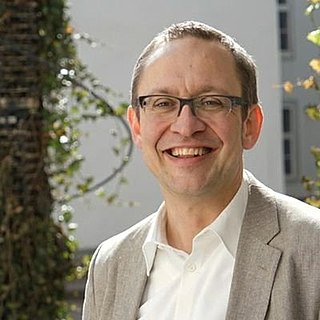
Philipp Schweighauser is a Swiss literary scholar and professor of North American and General Literature at the University of Basel.
Paul Giles is an English-born academic, author and researcher. He is a Professor of English in the Institute for Humanities and Social Sciences at the Australian Catholic University in Melbourne. He is also an Honorary Professor at the University of Sydney.









